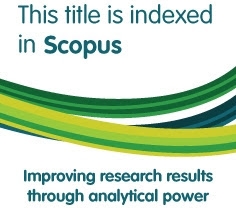Al-Islām wa al-Madd wa al-Jazr fī al-‘Alāqāt bayn al-Dīn wa al-Dawlah fī Indonesia
Abstract
This article reviews the complex contestation between religion and state in terms of the Muslims role in the formation of nation state since Indonesia’s independence. The article’s first part discusses the emergence of new middle-class Muslims that played a key role in the Islamization process and contribute to the emergence of Islamist attitudes and behavior. These attitudes tend to be strengthened and lead the potential latent extremism endangering multiculturalism and multireligious life in Indonesia. The article’s second part focuses on the long history of the Muslims role as majority groups in the formation of the constitution’s nomenclature relating to the position of religion in the state system. The new middle-class Muslims also have a desire to achieve their dreams exposing the greater portion of religion in public sphere. It can be seen from the strengthening of those Muslims activists in the parliament to transform the comprehensive meaning of the concept of God.
Keywords
Full Text:
PDFReferences
Adji, Oemar Seno. 1976. Hukum (Acara) Pidana Dalam Propeksi. Jakarta: Erlangga.
Alatas, Alwi, and Fefrida Desliyanti. 2002. Revolusi Jilbab: Kasus Pelarangan Jilbab Di SMA Negeri Se-Jabotabek, 1982-1991. Cet. 1. Jakarta: Al-I’tishom Cahaya Umat.
Ali, Fachry, and Bahtiar Effendy. 1986. Merambah Jalan Baru Islam: Rekontruksi Pemikiran Islam Indonesia Masa Orde Baru. Bandung: Mizan.
Anwar, M. Syafi’i. 1995. Pemikiran Dan Aksi Islam Indonesia: Sebuah Kajian Politik Tentang Cendekiawan Muslim Orde Baru. Cet. 1. Jakarta: Paramadina.
Atkinson, Jane Monnig. 1983. “Religions in Dialogue: The Construction of an Indonesian Minority Religion.” American Ethnologist 10(4): 684–696.
Beaman, Lori G. 2003. “The Myth of Pluralism, Diversity, and Vigor: The Constitutional Privilege of Protestantism in the United States and Canada.” Journal for the Scientific Study of Religion 42(3): 311–325.
Beyer, Peter. 2003. “Constitutional Privilege and Constituting Pluralism: Religious Freedom in National, Global, and Legal Context.” Journal for the Scientific Study of Religion 42(3): 333–339.
Bourdieu, Pierre. 1977. Outline of a Theory of Practice. London: Cambridge University Press.
Christiansen, Connie Carøe. 2003. “Women’s Islamic Activism: Between Self-Practices and Social Reform Efforts.” In Modernizing Islam: Religion in the Public Sphere in Europe and the Middle East, eds. John L. Esposito and François Burgat. New Brunswick New Jersey: Rutger University Press.
Damanik, Ali Said. 2002. Fenomena Partai Keadilan: Transformasi 20 Tahun Gerakan Tarbiyah di Indonesia. Jakarta: Teraju.
Foucault, Michel. 1988. Technologies of Self: A Seminar with Foucaul. London: Tavistock.
Garvey, John H. 1996. “Anti-Liberal Argument for Religious Freedom, An.” J. Contem. Legal Issues 7: 275.
Gill, Anthony. 2005. “The Political Origins of Religious Liberty.” Interdisciplinary Journal of Research on Religion 1.
Gunn, T. Jeremy. 2004. “Under God but Not the Scarf: The Founding Myths of Religious Freedom in the United States and Laïcité in France.” Journal of Church and State 46(1).
Gvosdev, Nikolas K. 2001. “Constitutional Doublethink, Managed Pluralism and Freedom of Religion.” Religion, State & Society 29(2): 81–90.
J.A., Denny. 1990. Gerakan Mahasiswa dan Politik Kaum Muda Era 80-an. Jakarta: CV. Miswar.
Jamhari, and Jajang Jahroni, eds. 2004. Gerakan Salafi Radikal Di Indonesia. Jakarta: RajaGrafindo Persada.
Kroef, Justus M. Van der. 1953. “Conflicts of Religious Policy in Indonesia.” Far Eastern Survey 22(10): 121–125.
Madjid, Nurcholish. 1987. Islam, Kemodernan, Dan Keindonesiaan. Cet. 1. Bandung: Mizan.
Mann, Michael. 1993. The Sources of Social Power: The Rise of Classes and Nation-States. Cambridge: Cambridge University Press.
Marty, Martin E., and Robert S. Appleby, eds. 1995. Fundamentalisms Comprehended: Fundamentalisms Comprehended. Chicago and London: The University of Chicago Press.
Nieuwenhuijze, C.A.O van. 1958. Aspects of Islam in Post-Colonial Indonesia. The Hague and Bandung: E.J. Brill.
Oliva, Javier García. 2007. “The Legal Protection of Believers and Beliefs in the United Kingdom.” Ecclesiastical Law Journal 9(1): 66–86.
Qardhawi, Yusuf. 1994. Muslimah: Harapan Dan Tantangan. Jakarta: Gema Insani Press.
Roy, Olivier. 1994. The Failure of Political Islam. Massachusettes: Harvard University.
Sarwini. 2005. “Tinjauan Yuridis-Kriminologis Terhadap RUU KUHP: ‘Kriminalisasi’ Atas Penghinaan Agama Dan Kehidupan Beragama.” In Catatan Seminar Kriminalisasi Atas Penghinaan Agama Dan Kehidupan Beragama, Surabaya: Komnas HAM, ELSAM, PUSHAM Ubaya, KAHAM Undip dan PAHAM Unpad.
Sidjabat, Bonar. 1965. Religious Tolerance and the Christian Faith: A Study the Concept of Divine Omnipotence in the Indonesian Constitution in the Light of Islam and Christianity. Jakarta: BPK Gunung Mulia.
Simandjuntak, Marsilam. 1994. Pandangan Negara Integralistik: Sumber, Unsur Dan Riwayatnya Dalam Persiapan UUD 1945. Jakarta: Grafiti Press.
Stahnke, Tad, and Robert C. Blitt. 2005. “The Religion-State Relationship and the Right to Freedom of Religion or Belief: A Comparative Textual Analysis of the Constitutions of Predominantly Muslim Countries.” Georgetown Journal of International Law 36(4).
Utvik, Bjorn Olav. 2003. “The Modernizing Force of Islamism.” In Modernizing Islam: Religion in the Public Sphere in Europe and the Middle East, eds. John L. Esposito and François Burgat. New Brunswick New Jersey: Rutger University Press.
Wawer, von Wendelin. 1974. Muslime Und Christien in Der Republik Indonesia. Weisbaden: Franz Steiner Verlag.
Yamin, Muhammad. 1959. Vol. 1 Naskah Persiapan Undang-Undang Dasar 1945. Jakarta: Jajasan Prapantja.
DOI: https://doi.org/10.15408/sdi.v23i2.3715
Refbacks
- There are currently no refbacks.

All publication by Studia Islamika are licensed under a Creative Commons Attribution-NonCommercial 4.0 International License.
Studia Islamika, ISSN: 0215-0492, e-ISSN: 2355-6145
View My Stats
